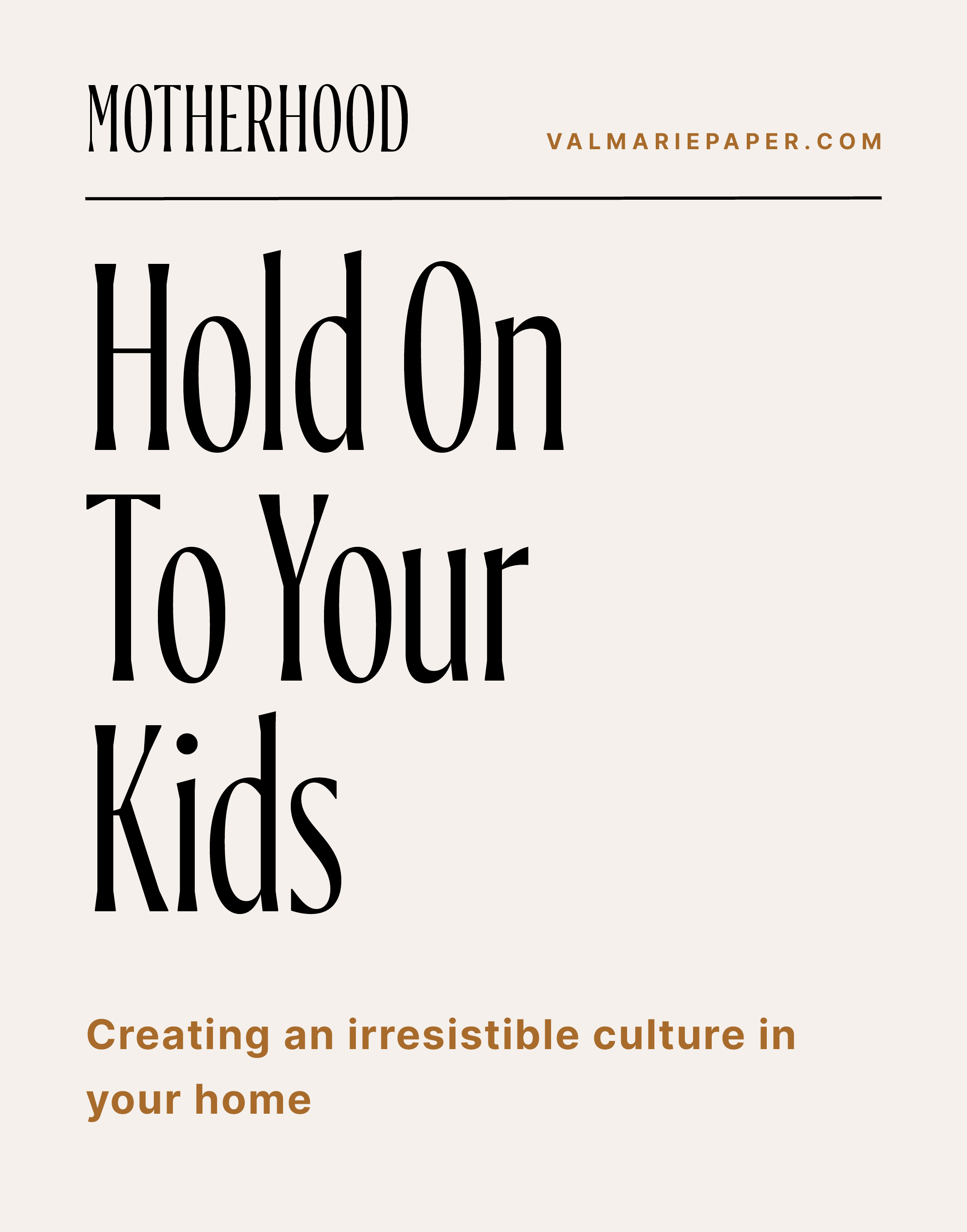 It’s been 3 years since Grumpy Mom Takes a Holiday was released! When I first started writing the book, I hadn’t really heard moms talk about toxic mommy culture (believe me, I looked!). It wasn’t a topic of conversation that the way moms are stereotyped by the world might actually be damaging to our view of motherhood. That seems pretty crazy to even think because I feel like we’re seeing more conversations happening now and I couldn’t be more excited!
It’s been 3 years since Grumpy Mom Takes a Holiday was released! When I first started writing the book, I hadn’t really heard moms talk about toxic mommy culture (believe me, I looked!). It wasn’t a topic of conversation that the way moms are stereotyped by the world might actually be damaging to our view of motherhood. That seems pretty crazy to even think because I feel like we’re seeing more conversations happening now and I couldn’t be more excited!
Side note: If you haven’t read Grumpy Mom Takes a Holiday or Fresh Start for Moms (the 31-day devotional that’s a perfect follow-up) I think it would bring so much refreshment to you!
I’m not so proud to think it happened because of one book, but I’m so grateful to have been a part of the changing narrative.
So today, I want to keep changing the narrative with a concept that Jefferson Bethke mentioned in his book Take Back Your Family, that I could not get off my mind.
Bethke references a book, Hold Onto Your Kids, by Gordon Neufeld and Gabor Mate that shares this idea and it’s pretty counter-culture. I just finished reading it and want to share more about it with you. (Disclaimer: It’s a long book, kinda hard to get through, but the content is good. I don’t agree with everything in the book, but there are undeniable truths shared that are radically shifting the way I see parenting and how we plan to do things in the future).
Here’s a quote from Neufeld and Mate, that sums up a lot:
“As children grow, they have an increasing need to orient: to have a sense of who they are, of what is real, why things happen, what is good, what things mean… Children are utterly incapable of orienting by themselves. They need help… The crucially important orienting function can be bestowed on someone ill-suited for the task–a child’s peers, for example. When a child becomes so attached to her peers that she would rather be with them and be like them, those peers, whether singly or as a group, become that child’s working compass point. Her peers will become the arbiters of what is good, what is happening, what is important, and even of how she defines herself.”
It’s easy for kids to drift to whoever has a pull nearby. When our kids latch on to other kids to determine their identity and values, it’s asking their peers to do something they aren’t mature enough to do.
Why does this feel so counterculture? Because it teaches that what we see as normal behavior for kids detaching from their parents and caring more about their friends isn’t healthy or just a normal stage in a child’s development but it’s actually something harming them.
I mean, that’s tough to hear, no?
The good news is that there is hope that we don’t have to just be resolved to “lose our kids” to their peers when they come of a certain age. Again, this seems so counterculture but as I’ve thought of a few families that have teenagers that are respectful and actually like their parents, I see it’s not by accident. They are doing something different.
Neufeld and Mate shared 6 ways of attaching. After I share these, I’m going to share some really practical ways we’re working on this in our home.
- Senses – Physical proximity
- Sameness – Identifying with someone
- Belonging and Loyalty – Claiming as their own and being faithful
- Significance – Feeling we matter to someone
- Feeling – Emotional intimacy
- Being Known – Being vulnerable and sharing secrets
If our kids aren’t able to experience attachment with us, they will find it somewhere else. Bethke talks about how creating a family culture acts as a magnet for kids as they are looking for who to attach to.
As I’ve read this I’ve been asking the question, what does it look like to create a family culture? Bethke definitely has some resources and I’ll share a few of his ideas, but I wanted to share what we’ve been doing.
1. Prioritizing family fun
This might sound pretty basic but it’s an easy start if this concept feels intimidating. As we receive invitations to all sorts of fun things, we’ve actually been more intentionally doing things as family.
- Friday Pizza night and a picnic (or movie if it’s cold!).
- Mother-Daughter, Father-Daughter dates on Saturday afternoons.
- Less scheduled activities that keep us on the go and more time to pick up a game and just have fun at home.
- Dinners around the table every night. For Lent, we gave up dinner in front of the TV, which usually happened a few times a week. The quality of conversation and life that’s happening around the table has been so good!
2. Teach lessons
We want to instill values that show the girls what we believe. Ironically, we had a guest speaker at church Sunday who hit on this importance. You can see the sermon here if you want to be challenged and encouraged. What this is looking like in our family has been a few different things:
- Boundaries for Kids – Dr. Henry Cloud and John Townsend wrote this book on 10 principles that healthy adults need and basically how to teach them to kids. We’re taking one principle a month this year (with some wiggle room) and it’s been so good!
- As I read things in Scripture that I think would be good to share with the girls, I’ll write on a post-it note and share them during dinner. After some very grumbly weeks, we talked about grumbling and a few days later, Vivi said “Momma, we haven’t been grumbling as much!!” I kind of sat there stunned realizing how effective simply talking about things, not when it’s a discipline moment or someone is in trouble, can be.
 3. More blessings and words that uplift
3. More blessings and words that uplift
There is no shortage of words of discipline, right? It feels like we’re constantly telling our kids what not to do or what they are forgetting to do. We have to create some balance and make sure that’s not all they hear from us. I can say from personal experience that, in marriage, if all Tyler and I’s interactions are logistical and I don’t hear he loves me, I start to assume one harsh comment is how he feels about me. Of course, I know in my head that he loves me, but hearing it makes the occasional harsh comment not sting because they’re not the only words spoken to me.
- End the day with a blessing – We don’t do this every night but the girls love it! A prayer of God’s blessing over their life.
- Share 3 things we love about them – We’ll do this occasionally as a family, not just us to the girls and that’s fun too!
- Notes or pictures in their lunchbox – This is a small thing that connects our kids to us in the middle of the day.
4. Collecting our kids
This is something Neufeld and Mate shared. about. It’s basically having a moment where we make eye contact with our kids and speak to them after time apart or before they leave. This sounds a little hokey but I’ve been noticing how easy it is to have our kids wake up and not have a moment with them that lets them know how loved and accepted they are. Maybe it’s a busy morning so we tell them to go get dressed. Or they go play and don’t even bother coming to tell us good morning.
- Morning eye contact – I literally hold their shoulders or hands and make sure I have their eyes and attention and tell them how much I love them, how much I love being their mom, or something of meaning.
- Unpacking the day – On the car ride home from school, I ask all sorts of questions: Who’d you play with a recess? How was the test? Was (that thing you were worried about) as bad as you thought? Did you get to pet Coconut (class hamster 🙂 ) today?
5. Living a multi-generational life
Our kids need to be around people of all ages. It’s amazing how we learn and grow when we have conversations with people from other generations. In the book, Neufeld refers to a teen telling another teen “You can’t trust anyone over 30!” My heart kind of broke to think of what a lonely world it must be to only trust peers and think adults are the enemy. I want to instill in our girls a level of respect for older people.
- Saturday donuts with Pawp – We have donuts each week with my grandpa. Tyler was actually the one to start this years ago when I spent Saturday mornings writing. It’s been a sweet blessing. Sometimes the girls get bored with grownup talk so we try to think of questions to ask about his childhood.
- Neighborhood walks and talks – As we go for walks, we stop to talk to people, not just families who have kids our age.
- Kind words about older generations – This includes lots of praise of our own parents and grandparents and not complaining about my own mom to my kids when she does something that bothers me. 😉
- Learning to open doors and give up seats for the elderly – This feels so basic but I don’t even think I have to tell you, this is not basic manners anymore.
I have so many more thoughts but I think I’m teetering a fine line between helpful tips and complete overwhelm.
Whether or not you try any of the practical tips, I hope your big takeaway is that our kids don’t need to be lost to their peers. We can hold on to them. And it doesn’t mean they’ll never disrespect us or disobey or have their teenage moments. But it does mean we can be the ones who get to be there for them no matter what they go through!
If I can share a small example, after weeks of sickness the last few months, Vivi and Vana’s behavior was starting to look different. They seemed a little detached. They woke up, went immediately to playing instead of coming to jump on my bed or snuggle with me on the couch. They were angrier and more easily triggered too. As I read Hold onto your Kids, the authors talked about aggression in our kids that can be a result of lost parent attachment.
After several days of incorporating what I learned, more quality time, and then a week off school with lots of patience and attention from me, their response was night and day different! This isn’t to say I can never be sick or go out of town. But it was a clear indicator to me how true this was.
Maybe our kids aren’t disrespectful or just private or extreme extroverts.
If you feel defeated and detached from your kids, be encouraged! Take small steps to a family culture that not only your kids are excited to be a part of but you are too! The joy I have felt for my family has been unmatched lately (this coming from a girl who literally wrote a book called Grumpy Mom Takes a Holiday). I’m learning a new level of joy and I feel like it’s due to the Lord’s graciousness to build our family culture around the one who made us one. 😊












Leave a Reply
Comments (4)
This really spoke to me. Thank you.
So glad Melody!!
Love this post so very much, Val! Thank you for sharing!! I have Take Back Your Family on my bedside table and am even more excited to dive in 🙂
Oh yay! You will love it! It was a quick but impactful read!!